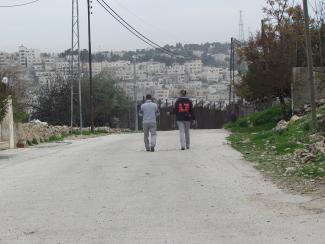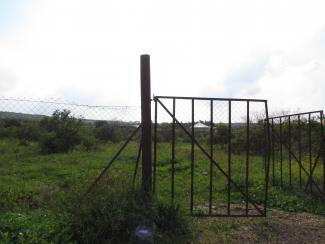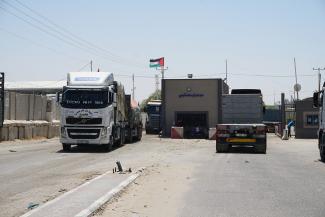The Temporary International Presence in Hebron (TIPH) has left the H2 area of Hebron city following the Israeli government’s decision not to renew its mandate beyond 31 January 2019. Combined with intensified harassment and restrictions against residents and the remaining protective presence actors in the area, this increases the protection risks faced by the population, particularly schoolchildren. In his remarks to the Committee on the Exercise of the Inalienable Rights of the Palestinian People, UN Secretary General António Guterres expressed regret at Israel’s decision not to renew TIPH’s mandate. He expressed the hope that an agreement can be reached to “preserve this long-standing and valuable arrangement”.
The Monthly Humanitarian Bulletin | February 2019
The international Commission of Inquiry into the protests in Gaza releases its initial report. Departure of TIPH mission increases protection concerns for H2 residents of Hebron. Palestinian access to land behind the Barrier increasingly rejected due to bureaucratic reasons. Improvements to Gaza Reconstruction Mechanism expected to improve its effectiveness.
In this document
Recent findings indicate a significant decline in the number of permits issued by the Israeli authorities for Palestinian farmers and workers to access their land in the West Bank behind the Barrier. According to official data obtained by the Israeli organization HaMoked, the approval rate for permits for landowners fell from 76 per cent of applications in 2014 to 28 per cent in 2018 (up to 25 November). Permits issued to agricultural workers declined from 70 per cent and 50 per cent of applications in the same period
In February, the Israeli government implemented a law enacted in 2018 to withhold USD 140 million in Palestinian tax revenue transfers. According to the Israeli authorities, this is equivalent to the sum paid by the Palestinian Authority (PA) to the families of Palestinians convicted of security-related offenses in Israeli courts. In response, the PA announced that it would refuse to accept any of the customs duties and other taxes collected by Israel on behalf of the PA and transferred to it monthly: these allocations account for approximately 65 per cent of the PA’s budget.
In February 2018 the UN agreed with the Israeli government and the PA to undertake a joint review of the temporary Gaza Reconstruction Mechanism (GRM) to improve its functionality, transparency and predictability. In consultation with a variety of stakeholders, the parties introduced various improvements to the GRM in January 2019 and these are expected to facilitate the implementation of humanitarian and development projects.












